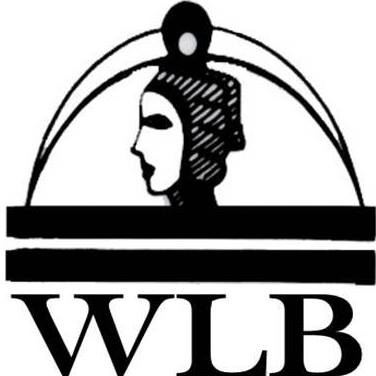Project
Feminist Schools in Southeast Asia
-
Amount Funded
17,634 EUROProject Duration
01 Mar 2020 - 28 Feb 2021 -
-
Lead organisation
-
The Women’s Legal and Human Rights Bureau Inc. (WLB), formerly Women’s Legal Bureau, was established in 1990 by feminist human rights advocates wanting to effectively address the prejudices suffered by Filipino women before the law and in the legal system. WLB emerged as the first consciously feminist legal organisation pushing for feminist legal advocacy as a strategy for the promotion and defense of women’s human rights. Kalyanamitra was established on the 28 of March of 1985, as the first feminist organisation in Jakarta, Indonesia.
The organisation has a long-term vision to create community and state system with gender equality and justice through strengthening the capability of women with the principle of care and solidarity. WLB and Kalyanamitra work hand-in-hand in implementing this project. These organisations have been active within the women’s movements in their respective countries and in SEA for more than two decades. As such, they have consistently applied feminist perspectives in their advocacy works that include educating women’s grassroots organisations, writing modules, and providing trainings on women’s human rights.
-
Organisation
The Women’s Legal and Human Rights Bureau Inc. (WLB), formerly Women’s Legal Bureau, was established in 1990 by feminist human rights advocates wanting to effectively address the prejudices suffered by Filipino women before the law and in the legal system. WLB emerged as the first consciously feminist legal organisation pushing for feminist legal advocacy as a strategy for the promotion and defense of women’s human rights. Kalyanamitra was established on the 28 of March of 1985, as the first feminist organisation in Jakarta, Indonesia.
The organisation has a long-term vision to create community and state system with gender equality and justice through strengthening the capability of women with the principle of care and solidarity. WLB and Kalyanamitra work hand-in-hand in implementing this project. These organisations have been active within the women’s movements in their respective countries and in SEA for more than two decades. As such, they have consistently applied feminist perspectives in their advocacy works that include educating women’s grassroots organisations, writing modules, and providing trainings on women’s human rights.
-
Project
Blatant disregard for the rule of law, pervasive culture of impunity, and intensified political repression and conservative fundamentalism are constricting democratic spaces across Southeast Asia (SEA), particularly in the Philippines and Indonesia. The harsh socio-political landscape breeds more violent and discriminatory spaces for women. For example, Indonesia is still battling with discriminatory national and local bylaws while the Philippines is still suffering from state-sponsored misogynistic violence. All these normalise violence against women and girls, and particularly those women facing marginalisation, such as Lesbians, Bisexual and Transgender (LBTQ) women, women living with disabilities, indigenous women, victims of (sexual) violence and exploitation women.
This project Feminist School for Women and Young Women Activists in Indonesia and the Philippines empowers a new generation of (marginalised) women/young women to become activists and leaders committed to work for social change, equality, and the protection of women and girls through women’s movement building. Towards this end, feminist leadership modules are developed specifically for Indonesia and the Philippines, and later on for SEA in general, taking into consideration the distinct contexts of the two countries as well as their similarities especially for marginalised women. Workshop discussions for the development of modules will involve marginalised women communities, veteran activists and younger feminists to promote intergenerational learning.
The modules are written in the local language so communities and even young women can replicate some of the sessions in the training especially those on womens human rights and discrimination, protection, and intersectionality. Such modules are put practice through the establishment of feminist schools in the Philippines and Indonesia respectively. Finally, Regional Feminist Camp (with the participation of women from Cambodia, Myanmar, Thailand, and Laos) is organised in the last phase of the project to fortify solidarity among women and ensure the sustainability of women’s movement in SEA.
-
-
Blatant disregard for the rule of law, pervasive culture of impunity, and intensified political repression and conservative fundamentalism are constricting democratic spaces across Southeast Asia (SEA), particularly in the Philippines and Indonesia. The harsh socio-political landscape breeds more violent and discriminatory spaces for women. For example, Indonesia is still battling with discriminatory national and local bylaws while the Philippines is still suffering from state-sponsored misogynistic violence. All these normalise violence against women and girls, and particularly those women facing marginalisation, such as Lesbians, Bisexual and Transgender (LBTQ) women, women living with disabilities, indigenous women, victims of (sexual) violence and exploitation women.
This project Feminist School for Women and Young Women Activists in Indonesia and the Philippines empowers a new generation of (marginalised) women/young women to become activists and leaders committed to work for social change, equality, and the protection of women and girls through women’s movement building. Towards this end, feminist leadership modules are developed specifically for Indonesia and the Philippines, and later on for SEA in general, taking into consideration the distinct contexts of the two countries as well as their similarities especially for marginalised women. Workshop discussions for the development of modules will involve marginalised women communities, veteran activists and younger feminists to promote intergenerational learning.
The modules are written in the local language so communities and even young women can replicate some of the sessions in the training especially those on womens human rights and discrimination, protection, and intersectionality. Such modules are put practice through the establishment of feminist schools in the Philippines and Indonesia respectively. Finally, Regional Feminist Camp (with the participation of women from Cambodia, Myanmar, Thailand, and Laos) is organised in the last phase of the project to fortify solidarity among women and ensure the sustainability of women’s movement in SEA.



